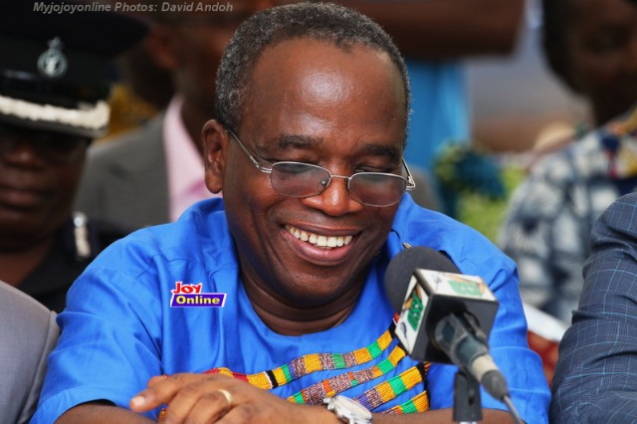The National Media Commission (NMC) is now ready to fulfil its constitutional mandate after decades of slumber during which the rights and freedom of the media were blatantly abused by our governments.
Ghana’s ranking on the global Press Freedom Index has been fluctuating substantially from 2008 to 2020. The country shed staggering three points in 2020 to rank 30 out of 180 globally assessed nations. This is prima facie evidence of the low level of freedom available to journalists in the small West African nation despite its celebrated democratic credentials.
The Media Foundation for West Africa (MFWA), a non-governmental organisation warned in 2019 that events dating back to 2018 “paint a gloomy picture of the press freedom situation in the country.” The organisation cited increasing attacks on journalists, intimidation of the media, growing intolerance for dissenting views and the uneven application of the law, leading to the closure of pro-opposition media outlets, as evidence of the malicious violations of the rights and freedom of the media.
The crude murder of young Ghanaian journalist, Ahmed Hussein-Suale, on January 16, 2020, days after the airing of a documentary on bribery in football administration in Ghana marked the height of this impunity. To imagine that nobody has been arrested and prosecuted for the high-profile killing that attracted global attention beats me.
But these incidents have been possible because the media regulator, National Media Commission has been lethargic and irresponsible. The Commission has slept on its constitutional functions whilst the media and practitioners are at the gracious mercy of political thugs and appointees.
The NMC as established by the 1992 Constitution of Ghana in Article 166 (1) has been tasked in clear terms in Article 167 (a) to “promote and ensure the freedom and independence of the media for mass communication or information.” It has also been clothed with the power in Article 167 (c) to take steps to “insulate the state-owned media from governmental control.”
But the NMC as constituted in the past and present has rather been a weapon used by our governments to oppress the media and practitioners. The governing New Patriotic Party (NPP) is as guilty as the National Democratic Congress (NDC) when it comes to the abuse of press freedom. The media and practitioners have scars to show for the abuse suffered in the hands of these two dominant political parties.
It, therefore, did not come as a surprise to me when the Communications Minister, Ursula Owusu Ekuful directed the Ghana Broadcasting Corporation (GBC) and Crystal TV to limit their broadcasting channels on the National Digital Terrestrial Television (DTT) platform. As expected, the government has, with no sense of shame, mounted a fierce defence of the rather disingenuous directive under the pretext of protecting the DTT, a national asset, from abuse.
This is clearly what happens when impunity is licensed in a democratic country.
But the time is ripe for the media, practitioners and the National Media Commission to end this lawless attack by the political class and their supporters. The directive by the Communications Minister should be rejected outrightly since any such decision has no place in our democracy. It is particularly heart-warming to learn that the National Media Commission has ruled in favour of GBC and Crystal TV.
The Commission in a two-page statement released on Wednesday, July 22, 2020, said “the directive given to GBC and Crystal TV by the Minister for Communications purports to usurp the constitutional mandate and authority of the National Media Commission and same cannot be obliged under our current constitutional dispensation.”
The NMC noted in clear terms that “Broadcasting at all material times has involved two elements. These are content production and transmission. The two combine to constitute the broadcast medium. The DTT platform is the new technology for broadcasting transmission…[and] should, therefore, be treated as media.”
The statement signed by the NMC Chairman and colleague journalist, Yaw Boadu-Ayeboafo concluded “any action by any entity which culminates into limiting or depriving the media of the use of public resources legitimately allocated to them undermines their capacity to serve the nation as anticipated by the Constitution.”
Today is July 23, 2020, and the media regulator is beginning to demonstrate its preparedness to live up to its constitutional mandate after years of neglect and to fight for media pluralism and independence.
As a journalist, I am not asking the NMC to shield the media and practitioners at all times when the situation and evidence do not permit same. Rather, we want the media regulator to be fair and impartial in its dealings without fear or favour.
***
The author, A. Kwabena Brakopowers is a freelance journalist, development communications practitioner, essayist and a novelist whose works focus on communication, politics, gender, migration, international relations and development. He could be reached at Brakomen@outlook.com
Latest Stories
-
Dozens missing after ferry sinks off Bali
2 hours -
Bank of England to redesign banknotes – and wants your help
2 hours -
Trump announces trade deal with Vietnam
2 hours -
Microsoft to cut up to 9,000 jobs as it invests in AI
2 hours -
Tesla deliveries fall for second quarter in a row
2 hours -
Catherine talks candidly of ‘life-changing’ cancer treatment
3 hours -
Ugandan military helicopter catches fire in deadly Somalia crash
3 hours -
Dramatic moment Sean ‘Diddy’ Combs fell to his knees after learning his fate
3 hours -
2026 NPP Primaries: National Council decision biased, unreasonable – Addai-Nimoh
3 hours -
Qualifier Tarvet impresses but cannot shock Alcaraz
4 hours -
Ghana and India to expand cooperation in trade, agriculture, energy – Mahama
4 hours -
Your visit reaffirms our collective commitment to global peace, prosperity – Mahama tells Narendra Modi
4 hours -
Israel: A divine and historical claim rooted in scripture and truth
4 hours -
Norway fight back to beat Euro 2025 host Switzerland
4 hours -
Anabel Rose unveiled as Fresh Finds Spotify cover for June
4 hours

